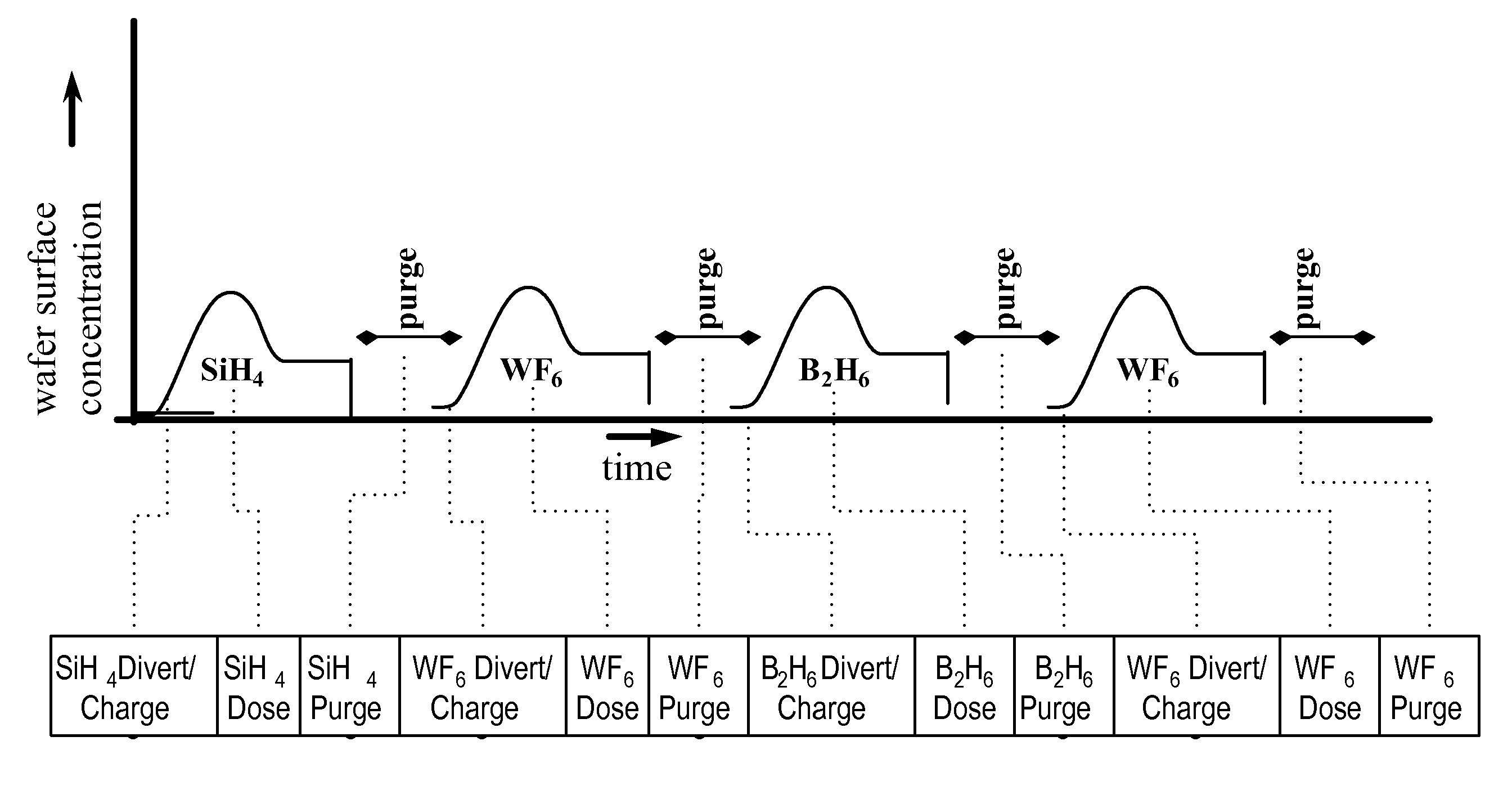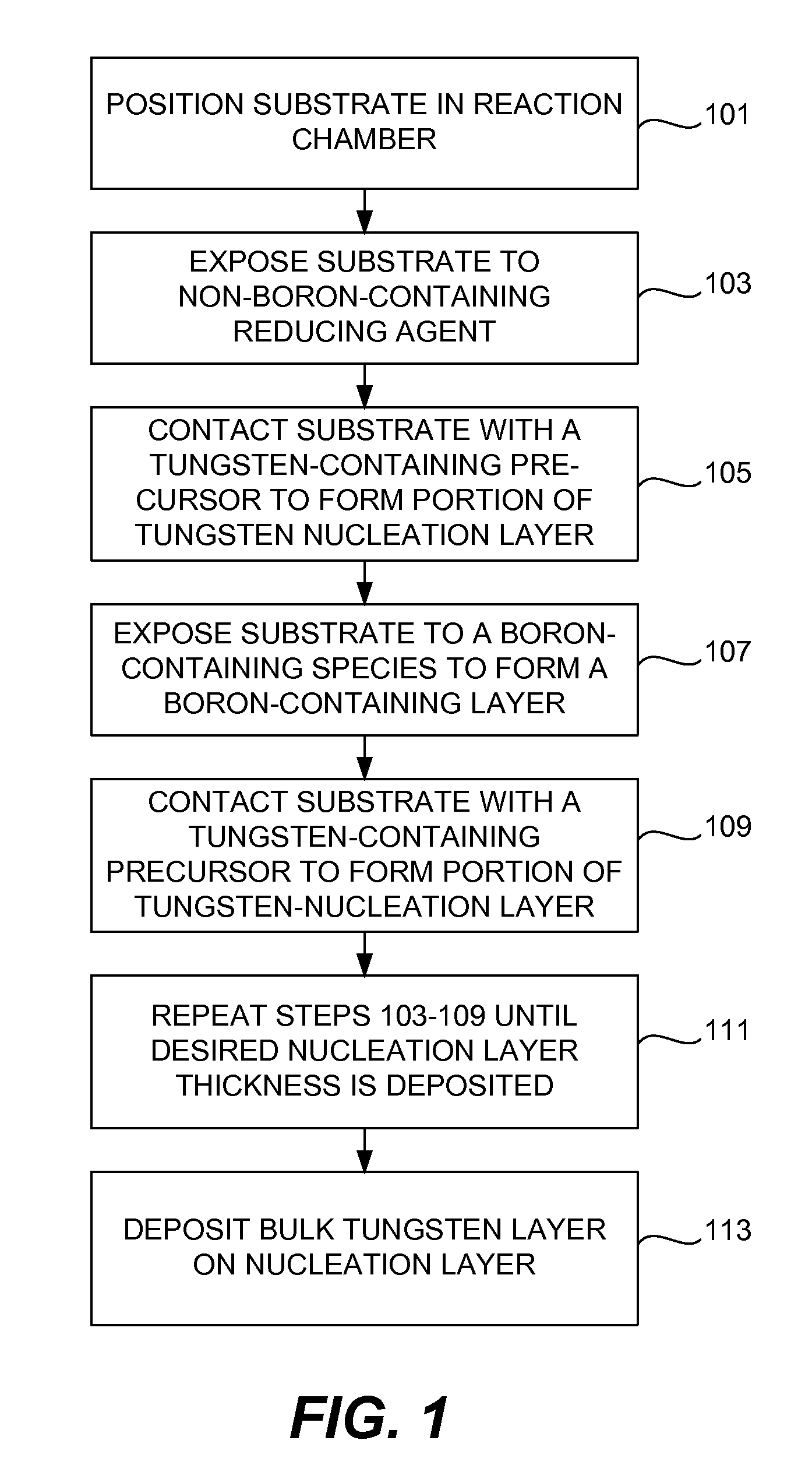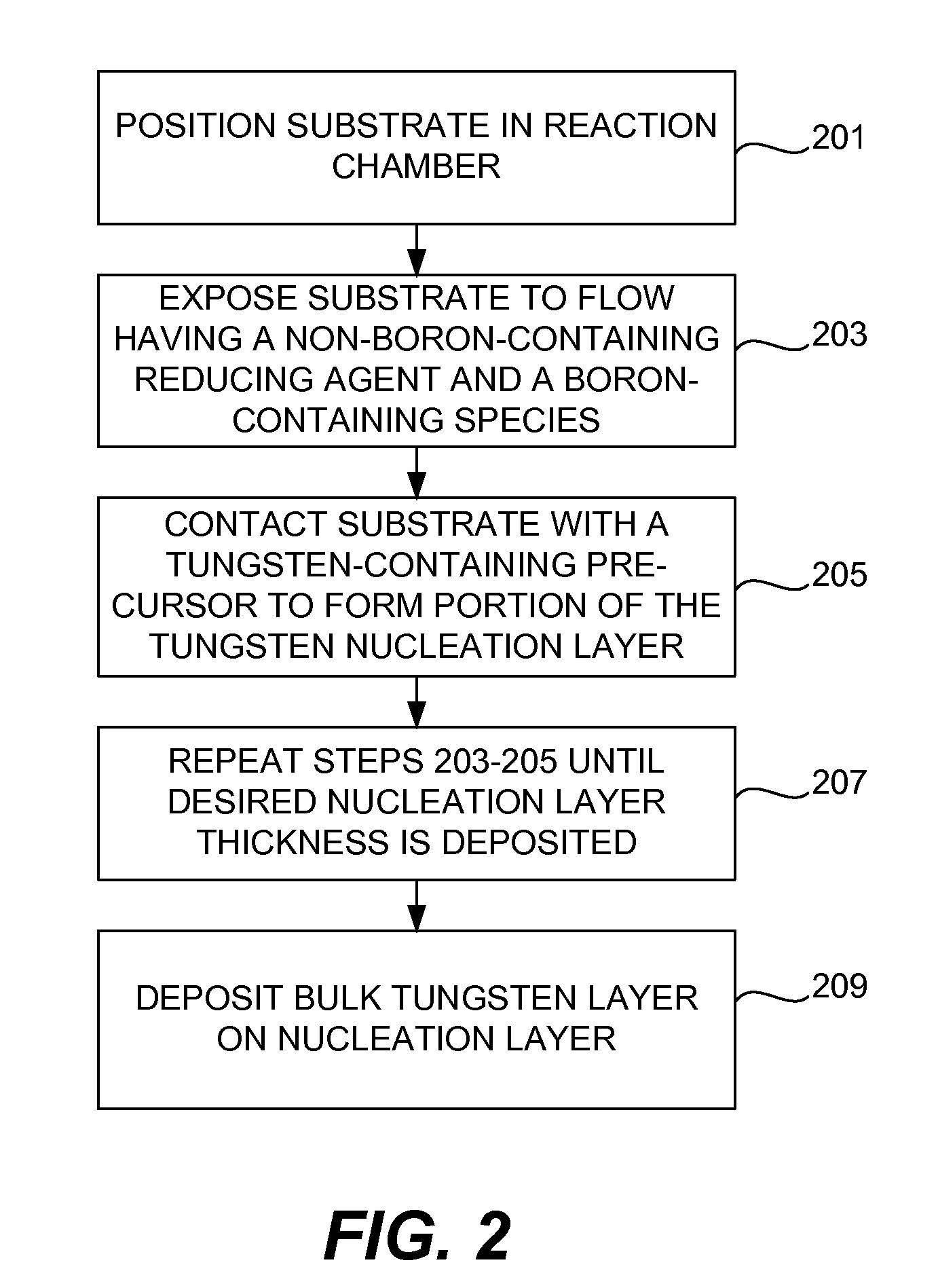Methods for growing low-resistivity tungsten film
a technology of low-resistance tungsten and tungsten film, which is applied in the direction of coating, chemical vapor deposition coating, metallic material coating process, etc., can solve the problems of limited ability to provide nucleation layers for the deposition of low-resistance tungsten in smaller features with high aspect ratios, and cannot be produced easily and reliably. , to achieve the effect of improving step coverage, controlling thickness and low resistan
- Summary
- Abstract
- Description
- Claims
- Application Information
AI Technical Summary
Benefits of technology
Problems solved by technology
Method used
Image
Examples
Embodiment Construction
Introduction
[0027]In the following description, numerous specific details are set forth in order to provide a thorough understanding of the present invention, which pertains to forming thin tungsten films. Preferred methods involve pulsed nucleation layer (PNL) deposition techniques, which will be described in detail below. Modifications, adaptations or variations of specific methods and or structures shown and discussed herein will be apparent to those skilled in the art and are within the scope of this invention.
[0028]In a PNL technique, pulses of the reducing agent, purge gases, and tungsten-containing precursors are sequentially injected into and purged from the reaction chamber. The process is repeated in a cyclical fashion until the desired thickness is achieved. PNL is similar to atomic layer deposition techniques reported in the literature. PNL is generally distinguished from atomic layer deposition (ALD) by its higher operating pressure range (greater than 1 Torr) and its h...
PUM
| Property | Measurement | Unit |
|---|---|---|
| operating pressure | aaaaa | aaaaa |
| pressure | aaaaa | aaaaa |
| pressure | aaaaa | aaaaa |
Abstract
Description
Claims
Application Information
 Login to View More
Login to View More - Generate Ideas
- Intellectual Property
- Life Sciences
- Materials
- Tech Scout
- Unparalleled Data Quality
- Higher Quality Content
- 60% Fewer Hallucinations
Browse by: Latest US Patents, China's latest patents, Technical Efficacy Thesaurus, Application Domain, Technology Topic, Popular Technical Reports.
© 2025 PatSnap. All rights reserved.Legal|Privacy policy|Modern Slavery Act Transparency Statement|Sitemap|About US| Contact US: help@patsnap.com



